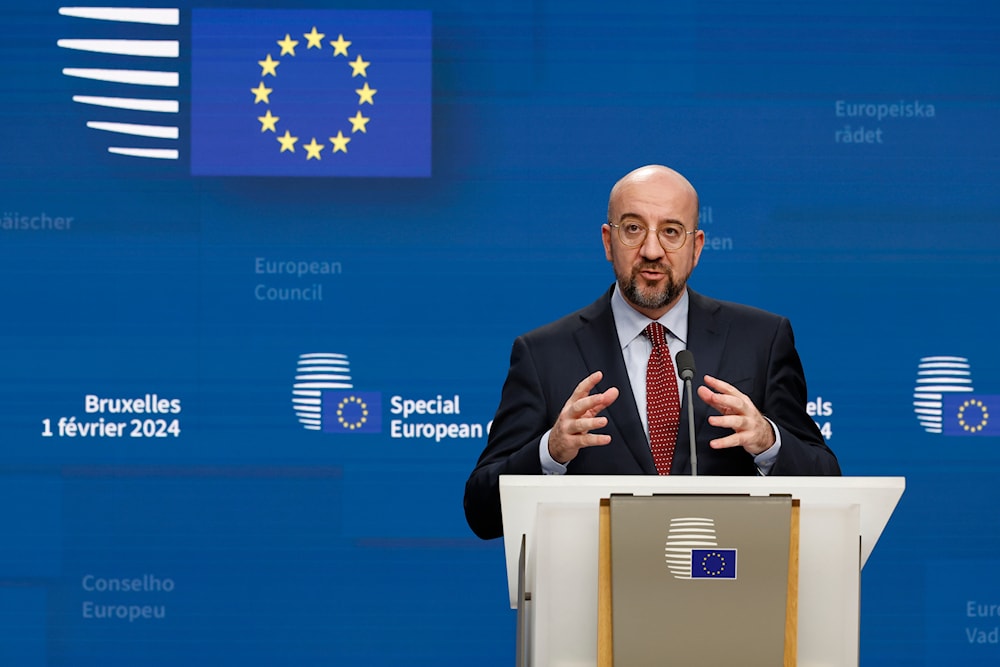EU Council chief Michel says seizing Russia's assets won't be easy
The European Council President states that it is difficult due to 'international and legal constraints' but confirms that the EU is working with other countries to procure funds for Ukraine.
-

European Council President Charles Michel talks to journalists in Brussels, Thursday, February 1, 2024. (AP)
European Council President Charles Michel said on Tuesday that constructing a legal framework to allow the European Union to seize frozen Russian state assets won't be such an easy thing to do.
During a European Parliament plenary session, he said, "It’s not going to be easy because there are international and legal constraints. We need to work, but we will do so working with our G7 partners".
Together with the G7 partners (the US, Japan, and Canada), the EU is anticipated to hold around $300 billion of Russian central bank assets.
This comes as the G7 have been discussing how to seize the funds to pay for Ukraine’s reconstruction. The EU possibility mirrors what the US Justice Department has been considering, as it seeks congressional approval to utilize frozen Russian assets in support of Ukraine.
"The Council has to move forward giving the Commission the task of focusing on profits so that we can make sure that this money is used for supporting Ukraine," Michel said in parliament.
Kiev's allies have been grappling with further means to send more funds as the war nears its two-year mark, and have been looking into the allocation of frozen Russian funds - estimated at $300 billion - as military aid to Kiev.
Read next: Ukraine's SBU uncovers $40mln embezzlement scheme in the military
Violation of sovereignty
The seizure of Russian frozen assets by any Western country would be regarded as "outright theft" and would be effectively responded to, the Russian Foreign Ministry said last month.
"We have spoken more than once about the illegitimacy of unilateral coercive measures taken by Western countries in relation to Russian property abroad. We have repeatedly noted that the seizure of property of the Russian Federation is unlawful and violates the fundamental principles and norms of international law, including the sovereign equality of states," the ministry said.
Foreign Ministry spokesperson Maria Zakharova said last week that the EU plan to seize Russian central bank assets was an "escalation of economic aggression" and a trade war, and warned that Russia would respond in a correspondingly harsh manner.
She said that any attempt to confiscate Russian assets would be a gross violation of the West’s own law, international rules, and bilateral obligations.

 3 Min Read
3 Min Read








